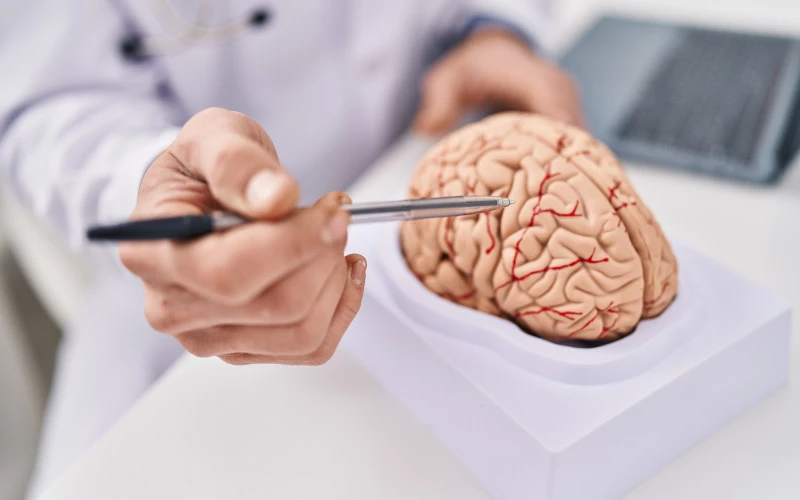The Relevance of Looking For Aid from the Best Psychologist in Delhi for Stress Administration
The Relevance of Looking For Aid from the Best Psychologist in Delhi for Stress Administration
Blog Article
Psych Treatment: A Comprehensive Guide to Methods and Results

Cognitive-Behavioral Therapy
Cognitive-Behavioral Therapy (CBT) is an extensively utilized psychotherapeutic approach that concentrates on determining and changing dysfunctional thinking and habits patterns. Developed in the 1960s by Aaron T. Beck, CBT combines behavior and cognitive concepts to attend to various mental wellness issues, including anxiety, stress and anxiety, and stress-related problems.
Methods such as cognitive restructuring, exposure treatment, and skill-building workouts are commonly used. Cognitive restructuring involves difficult and changing negative idea patterns, while direct exposure treatment intends to reduce worry and anxiety with gradual direct exposure to feared circumstances or things.
Evidence-based research study supports the efficacy of CBT for a large range of psychological conditions - Best Psychologist in Delhi. Its emphasis on skill procurement and self-help methods encourages customers to continue progression independently after therapy concludes. The flexibility and effectiveness of CBT have made it a keystone in contemporary psychotherapeutic method
Psychodynamic Methods
Rooted in the early concepts of Sigmund Freud, psychodynamic techniques concentrate on checking out the unconscious mind and its impact on habits and feelings. These techniques intend to discover concealed ideas and feelings that may be driving maladaptive behaviors and mental distress. Central to this strategy is the principle of inner conflict, usually stemming from unsolved past experiences, particularly those from childhood.
Therapists utilizing psychodynamic techniques use a number of vital approaches, consisting of free association, where patients are encouraged to speak freely to reveal subconscious product, and desire evaluation, which translates the unexposed web content of desires. Furthermore, the exploration of transference and countertransference characteristics within the healing relationship is important. These interactions can provide insights into the person's interior world and relational patterns.
Psychodynamic therapy is typically longer-term compared to other modalities, supplying a thorough and deep understanding of the individual's subconscious. Research shows that it can be especially effective for intricate mental wellness issues, such as personality disorders and chronic depression. By cultivating self-awareness and psychological understanding, psychodynamic therapy seeks to bring subconscious material to awareness, enabling people to accomplish meaningful and long-term modification in their lives.
Humanistic Strategies
Structure on the structures laid by psychodynamic methods, humanistic strategies supply a distinct viewpoint concentrated on specific potential and self-actualization. Coming from the mid-20th century, these techniques focus on the fundamental benefits and growth possibility of people, emphasizing an all natural view of human experience. Trick figures such as Carl Rogers and Abraham Maslow have actually considerably affected this healing technique, which includes techniques like client-centered therapy and Gestalt therapy.
Client-centered therapy, established by Rogers, plays a pivotal function in humanistic techniques. The therapist's role is more of a facilitator than an authority, urging clients to harness their inner resources for healing.
Gestalt therapy, an additional essential humanistic strategy, highlights present moment awareness and the combination of body and mind. By concentrating on the "right here and now," clients acquire greater insight right into their existing emotions and behaviors. Methods such as role-playing and assisted visualization are typically utilized to help clients acquire a much deeper understanding of themselves, eventually resulting in boosted self-awareness and fulfillment.
Integrative Therapies
Integrative treatments represent a synthesis of numerous restorative techniques tailored to meet the unique requirements of each client. This strategy recognizes the intricacy of human psychology and the multifaceted nature of psychological health and wellness issues. By combining elements from different colleges of psychotherapy-- such as cognitive-behavioral therapy (CBT), psychodynamic therapy, and humanistic techniques-- integrative therapies offer an even more versatile and holistic treatment paradigm.
Experts of integrative treatment analyze each customer's specific demands, signs, and personal history to develop a tailored therapy strategy. This individualized method improves the capacity for healing success by resolving the origin of emotional distress and promoting general wellness. Methods could include mindfulness exercises, cognitive restructuring, and emotional processing, each picked to target various facets of the client's issues.
In addition, integrative therapies highlight the restorative partnership, viewing the client-therapist bond as a critical element of reliable therapy. This partnership cultivates a helpful setting where customers really feel risk-free to check out and resolve their worries. The adaptability of integrative therapies makes them appropriate for a broad variety of conditions, including anxiety, depression, injury, and interpersonal problems, thus enhancing their applicability and effectiveness in varied scientific settings.
:max_bytes(150000):strip_icc()/types-of-psychologists-and-what-they-do-2795627_v1-9a9b856f7d1c494aafb96f59e4843f55.png)
Gauging Treatment End Results
Examining the performance of psychiatric therapy is crucial for both clients and clinicians to ensure More about the author that the treatment is yielding the preferred results. To achieve this, numerous approaches and devices are used to determine therapy outcomes methodically. Standard assessment tools, such as the Beck Anxiety Supply (BDI) and the Generalized Anxiety Condition 7 (GAD-7), offer quantitative data on sign severity and click here to read modifications with time.
In addition to standardized devices, qualitative approaches like client self-reports and scientific meetings offer important insights into the individual experiences and viewed progress of customers. Frequently arranged examinations, usually at the start, middle, and end of treatment, assistance in tracking the trajectory of renovation or recognizing locations requiring adjustment.
Result measurement is not limited to sign decrease; it additionally incorporates practical improvements in every day life, such as much better social relationships, increased work productivity, and enhanced overall well-being. Modern developments in electronic wellness have actually introduced mobile apps and on-line systems that facilitate real-time tracking and feedback, further improving the analysis process.
Ultimately, a thorough approach to measuring treatment results ensures that healing treatments are effective, efficient, and tailored to meet the specific requirements of clients, thereby maximizing the general restorative experience.
Conclusion
Humanistic methods concentrate on individual development and self-actualization, while integrative therapies incorporate numerous methods for customized therapy strategies. Examining treatment outcomes through standardized evaluations and qualitative methods guarantees an extensive understanding of effectiveness, eventually directing customers towards withstanding psychological wellness improvements.
From the structured technique of Cognitive-Behavioral Treatment (CBT) to the deep expedition of the subconscious in psychodynamic therapy, each approach brings one-of-a-kind benefits. Its focus on skill acquisition and self-help techniques encourages customers to continue progress independently after treatment wraps visit site up (Best Psychologist in Delhi). Key figures such as Carl Rogers and Abraham Maslow have considerably influenced this healing method, which includes methods like client-centered treatment and Gestalt therapy

Report this page